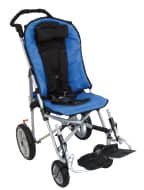The US Food and Drug Administration (FDA) has granted an investigational device exemption for the first-in-human trial of a neural-enabled prosthetic hand system (NEPH) that is designed to help restore sensation.
The system was developed at Florida International University by Ranu Jung and her team at the Adaptive Neural Systems Laboratory.
“The system is intended to restore the sense of touch, and hand opening which would allow users to precisely differentiate the size and fragility of various objects,” says Jung, interim dean of the College of Engineering and Computing and a Wallace H. Coulter Eminent Scholars Chair in biomedical engineering.
“The prostheses that exist today make it difficult for amputees to manipulate delicate and small objects because they can’t feel them,” Jung adds, in a media release from Florida International University.
Wires as thin as a hair strand are placed within nerve bundles in the arm and connected to an electrical stimulator. Sensors embedded in the prosthetic hand send signals wirelessly to the implanted stimulator, which then elicits sensation by delivering weak electrical pulses via the implanted electrodes. As a result, the person should be able to sense their hand opening position and grip items when the prosthetic hand encounters an object, the release explains.
The NEPH system is currently not FDA approved for commercial distribution in the United States. However, Jung states that if the first-in-human trial is successful, she and her team will continue testing the system through larger clinical trials and will eventually seek such approval.
[Source(s): Florida International University, PR Newswire]




